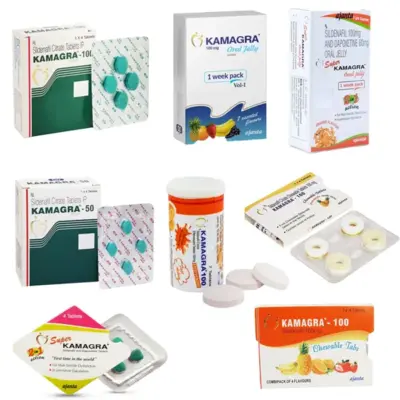Why Does COVID-19 Vaccine Need To Be Kept Colder Than Antarctica?

The recent announcement by the top notched drug makers, Pfizer and Moderna, about their successful development of their Coronavirus vaccine has raised hopes among people of eventually seeing an end to the pandemic which has rattled the world.
Despite it now a time to cheer, the good news has also brought a challenge–the distribution of the vaccines worldwide.
The underlying reason is that the vaccines have to be kept at freezing temperatures to preserve their potency. If distributors fail to maintain the stringent temperatures as mandated by the vaccine producers, it will lead to the damage of the vaccines, rendering them unfit for administration to people.
Pfizer’s vaccine needs to be stored at a remarkable freezing temperature of minus 70 degrees Celsius, a temperature which is even colder than winters in Antarctica. As such, healthcare facility owners should invest in an ultra-low temperature freezer to store the vaccine maintaining the requisite temperature environment. Moderna’s vaccine needs a freezing temperature of minus 20 degrees Celsius, which a regular pharmaceutical refrigerator can provide, doing away with the ultra-low temperature variants’ need.
However, there is no need to worry. It is not impossible to distribute the vaccine despite the challenges. The distribution is possible.
Notable, Pfizer has already implemented its way of storing its vaccines, alleviating the fear of the freezing temperature requirement’s challenges. The drug major has created its packing solution with dry ice to keep its vaccines at the necessary temperature for some weeks without necessitating ultra-low temperature freezers. Pfizer has named the packaging “the pizza box”.
On the other hand, there is no big challenge for distributing Moderna’s vaccine, which can be distributed in healthcare workers’ usual ways.
Table of Contents
The Working Mechanism of the Vaccines
Up until now, we have stated the freezing temperature requirements for storing the newly developed COVID19 vaccines. But, we are yet to say anything about how the vaccines work. The knowledge about the vaccines’ working mechanism will help unfold the vaccines’ reason for freezing temperatures for storage.
Both Pfizer and Moderna developed their vaccines with a new approach using messenger RNA (mRNA) to set free the human-body’s immune defense mechanisms. The new technique involves using messenger mRNA to use cells as factories to generate a particular Coronavirus protein.
The protein in a human body starts an immune response as in a real coronavirus infection. But, do not be afraid of the prospect of contracting Coronavirus after you get vaccinated with the vaccines. It will never happen as the vaccine will contain only one virus protein. As such, it cannot infect people or make them sick with COVID19.
So, when anyone, who gets a vaccination, will empower his body to fight Coronavirus if he subsequently gets exposed to the virus.
Moreover, it is worth knowing that the Food and Drug Administration (FDA) did not previously approve any mRNA vaccines. The vaccine technology is new.
The Necessity of Freezing Temperatures
mRNA presents a key advantage in vaccine production. It enables quicker vaccine development than other methodologies. The downside is that mRNA can get destroyed easily, which is due to the presence of many enzymes that can break it apart.
Scientists of both the drug companies have not used mRNA as it is, instead they made some changes to mRNA.
They modified the mRNA nucleotides, which are the vaccines’ fundamental building blocks, to render the nucleosides somewhat more stable. After that, they coated the modified nucleosides with lipid nanoparticles to shield the nucleosides from outside disturbances.
Eventually, the mRNA can still fall apart easily, even with the modification and lipid coating. It is where the need for freezing temperatures in storing the vaccines arises.
As everything happens more slowly in icy temperatures, the chemical reactions that break down mRNA also happen more slowly in such temperatures. It is why the vaccines have to be kept at freezing temperatures–to prevent them from getting damaged and become unfit for use.
The companies have kept their respective formations for their vaccines secret, so it is impossible to figure out why there is a difference between the temperature requirements for both the vaccines.
What is an Ultra-Low Temperature Freezer?
It will help if you brush up your knowledge with the what about an ultra-low temperature freezer. It will not be difficult for you to figure out that ultra-low temperature freezers are cold-storages that provide freezing temperatures. These freezers provide a temperature range of minus 45 degrees Celsius to minus 86 degrees Celsius.
Typically, ultra-low temperature freezers are used for storing items that require minus degree temperature, such as drugs, enzymes, chemicals, viruses, bacteria, cell preparations, vaccines, and tissue samples, etc. As Pfizer’s vaccine needs a minus degree temperature, such a freezer is ideal storage for the vaccine.
There is not one but multiple designs with varying sizes for such freezers. The buyer’s choice depends on how much storage he needs and the available space in his medical facility.
An upright freezer is the best choice for frequent use as it allows easy access with adjustable interior compartments. It also cools fast after opening and closing the door.
A chest freezer is what a buyer can consider for the long-term storage of the items he uses less frequently. Besides, there are table-top and under-bench freezers for a buyer to choose from.
Conclusion
The vaccines must go everywhere across the world so that everyone on the earth gets a COVID19 vaccine. Therefore, there have to be strong public and private partnerships to distribute the vaccines, maintaining the requisite temperature throughout the supply chain.



